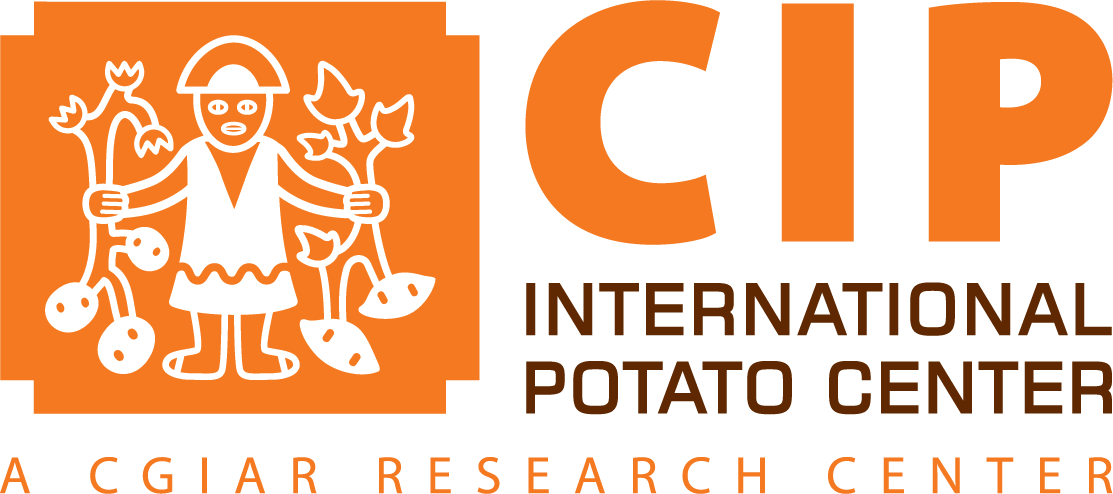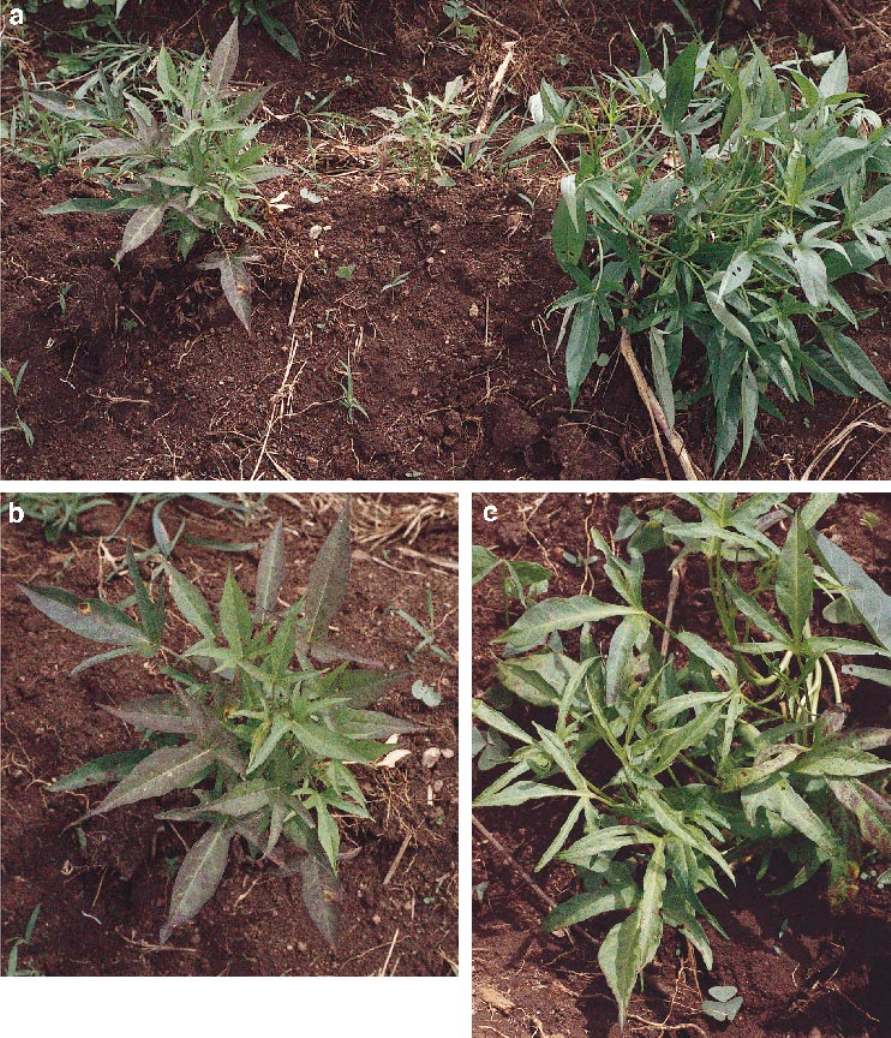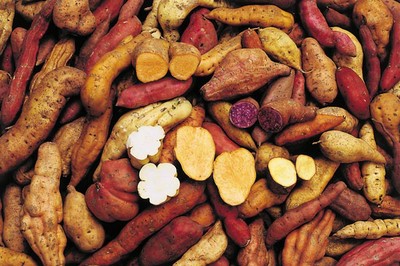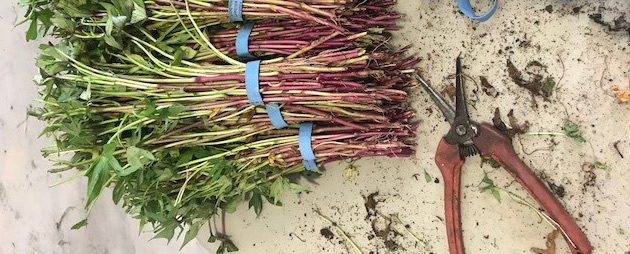Drought and Virus Tolerant Orange-Fleshed Sweet Potato
Summary
Cultivars of orange-fleshed sweet potato (OFSP) from Sub-Saharan Africa have been identified and bred that are adapted to drought and heat stresses, and others that withstand infections by common viruses affecting the crop. A number of hybrid OFSP varieties were developed that reach harvest maturity within just 90 days and can escape the risk tuber filling is affected by shortened duration of growing season where rainfall is more uncertain towards the end of the season. OFSP varieties that are resistant to a complex of stunt virus (SPCSV), mottle virus (SPFMV) and insects like weevils, aphids and whiteflies that damage crops in the field and stored tubers have also been released in different countries.
About the Solution
Tolerance of OFSP to drought, heat, pests and diseases is achieved by cross-breeding various cultivars and land races with desired characteristics. Adaptations to drier and warmer conditions are made by selecting traits such as early maturation, deep roots, narrow leaves, erect growth and high vine survival. Resistance of OFSP to virus and insect pests is accomplished by mass selection based on observation of symptoms in the field and genetic marker techniques.
Drought tolerant OFSP varieties are especially suited for regions with a semi-arid and dry tropical climates in Eastern, Western and Southern Africa, which face negative impacts of climate change of rainfall. Virus resistant OFSP cultivars are particularly useful for regions with high infestation rates to increase food security and prevent severe outbreaks. Like regular OFSP, tubers can be cooked and roasted fresh, or milled into flour and mashed into puree for use in a range of products including breads, chapatis, cakes, juices, porridge etc. OFSP can substitute wheat-based products are related imports and is gluten-free. Peels and tubers can also be made into feed meal for animal rearing, as well as for starch extraction.
Tubers from OFSP varieties that are drought tolerant and virus resistant contain high levels of beta-carotene, also called provitamin A carotenoid, and gives its orange color. The beta-carotene inside tubers is largely retained when processed, making it perfect for manufacturing healthy foods for consumers in the region.
Varieties of OFSP that are adapted to drought and resistant to viruses are propagated from seeds, tubers or vines, following the same procedures as non-adapted cultivars. Cuttings from vines are most commonly used for planting and easy to make yourself. Slips from tubers or cuttings from vines are nursed by planting them in beds or placing the bottom of the stem in water. The healthy slips or cuttings are planted by inserting these at an angle in the soil, using a spacing of 50cm between rows and 30cm from plant to plant.
Commercialization
Commercially available
Solution Images
Institutions

Accompanying Solutions
Community-based cutting production, Tent-style greenhouse production of vines and cuttings, Raised bed production and weed management, Specially blended fertilizers, Relay intercropping of legumes with sweet potato, Silage production from sweet potato vines



